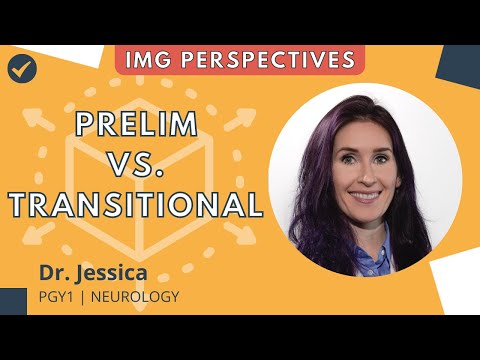Medicaid and Assisted Living Coverage – What You Need to Know
Contents
- What is Medicaid?
- How does Medicaid work?
- What are the eligibility requirements for Medicaid?
- What services does Medicaid cover?
- How does Medicaid affect assisted living?
- What are the Medicaid waiver programs?
- What are the benefits of Medicaid for assisted living?
- How do I apply for Medicaid?
- What are the drawbacks of Medicaid?
- Is Medicaid the right choice for me?
If you or a loved one are considering assisted living, you may be wondering about Medicaid coverage. In this blog post, we’ll discuss what Medicaid is, how it works, and what it covers.
Checkout this video:
What is Medicaid?
Medicaid is a government insurance program that helps with medical and long-term care costs for low-income Americans of all ages. In some states, Medicaid also provides coverage for people with disabilities and the elderly who live in assisted living facilities.
How does Medicaid work?
Medicaid is a federal and state health insurance program for low-income people of all ages. It covers medical and long-term care costs for people who meet certain eligibility requirements.
Assisted living is one type of long-term care that Medicaid can cover. If you’re eligible for Medicaid, coverage for assisted living costs may be available to you through your state’s Medicaid program.
To be eligible for Medicaid coverage of assisted living costs, you must meet certain income and asset requirements. These requirements vary by state, but generally, you must have countable assets of $2,000 or less (or $3,000 or less if you’re married). Your home and personal belongings are usually exempt from counting as assets.
Income requirements also vary by state, but generally, you must have an income at or below 138% of the federal poverty level to qualify for Medicaid coverage of assisted living costs. For 2021, that’s an annual income of $17,774 for an individual or $24,030 for a married couple.
If you don’t meet your state’s income and asset requirements for Medicaid coverage of assisted living costs, you may still be able to get coverage through a Medicaid waiver program. Waiver programs provide coverage for people with special needs who otherwise wouldn’t be eligible for Medicaid. Each state has its own waiver programs with different eligibility requirements.
What are the eligibility requirements for Medicaid?
There are four general types of Medicaid eligibility requirements: categorical, financial, medical, and
residency. Categorical requirements are based on certain characteristics of the applicant, such as whether
they are pregnant, disabled, blind, or over 65 years old. Financial requirements take into account the
applicant’s or family’s income and assets. In order to meet the medical requirement, the applicant must be
determined to be “medically needy” by a state-approved physician. And finally, residency requirements
vary by state but usually involve proof of U.S. citizenship or legal immigration status and residency in
the state where the application is being submitted.
What services does Medicaid cover?
Medicaid is a state and federal program that provides health insurance coverage for low-income individuals and families. Medicaid covers a wide range of services, including doctor visits, hospital stays, prescription drugs, and long-term care.
One type of long-term care that Medicaid covers is assisted living. Assisted living is a type of housing designed for people who need help with activities of daily living, such as bathing, dressing, and eating. Assisted living facilities also provide social and recreational activities, as well as transportation to medical appointments.
In order to be eligible for Medicaid coverage of assisted living, you must be aged 65 or older, or have a disability that requires the level of care provided in an assisted living facility. You must also meet your state’s income and asset requirements.
If you are eligible for Medicaid coverage of assisted living, you will be responsible for paying a monthly premium, as well as any co-pays or deductibles required by your state’s Medicaid program.
How does Medicaid affect assisted living?
Medicaid provides health insurance coverage for low-income individuals and families. In some states, Medicaid also provides coverage for long-term care, including assisted living.
To be eligible for Medicaid coverage of assisted living, you must meet certain requirements regarding your income and assets. You must also be able to demonstrate a need for long-term care services.
If you are eligible for Medicaid coverage of assisted living, your care will be paid for by the Medicaid program. You will not be responsible for any out-of-pocket costs.
It is important to note that not all assisted living facilities accept Medicaid patients. If you are considering an assisted living facility that does not accept Medicaid, you may have to pay for your care entirely out-of-pocket.
What are the Medicaid waiver programs?
Medicaid waiver programs are state-run programs that provide coverage for certain long-term care services, including assisted living. These programs are designed to help people who would otherwise have to go into a nursing home or other institutional setting. Each state has its own Medicaid waiver program, and coverage may vary depending on the state in which you live.
To be eligible for a Medicaid waiver program, you must meet certain financial and medical criteria. In general, you must have a low income and meet the requirements for nursing home care in your state. In some states, you may also be required to have a disability or be aged 65 or older.
If you are eligible for a Medicaid waiver program, your coverage may include payment for some or all of your assisted living costs. coverage may also include other services, such as Home Health Care respite care, and personal care services. If you have questions about whether you’re eligible for Medicaid assistance or what type of coverage is available in your state, contact your local Medicaid office.
What are the benefits of Medicaid for assisted living?
There are many benefits of Medicaid for assisted living. Medicaid provides financial assistance to low-income individuals and families who cannot afford the cost of medical care. Medicaid also covers the cost of long-term care for those who qualify.
Assisted living is a type of long-term care that provides personal care and support services to people who need help with activities of daily living, such as bathing, dressing, and eating. Assisted living facilities typically provide housing, meals, and transportation, as well as access to on-site health care services.
Medicaid can help pay for the cost of assisted living for those who qualify. In order to qualify for Medicaid coverage for assisted living, individuals must meet certain income and asset requirements. Medicaid also has different coverage levels for different types of long-term care services.
Benefits of Medicaid for assisted living include:
-Financial assistance with the cost of medical care
-Coverage for the cost of long-term care
-Different coverage levels for different types of long-term care services
-Access to on-site health care services
How do I apply for Medicaid?
There are several ways to apply for Medicaid. You can apply online, by phone, or in person at your local Medicaid office. You will need to provide some basic information about yourself and your family, as well as your income and assets.
To apply online, visit the Medicaid website and click on the “Apply for Benefits” link. You will be asked to create an account and then fill out an application.
To apply by phone, call your state’s Medicaid office and they will help you complete an application over the phone.
To apply in person, go to your local Medicaid office and they will help you fill out an application.
What are the drawbacks of Medicaid?
-There are a number of Medicaid services that are not covered under most plans.
-Some of the services that Medicaid does cover are limited in scope.
-Medicaid reimbursement rates for providers are often low, which can lead to problems with access to care.
-The eligibility requirements for Medicaid can be complex, and the application process can be difficult to navigate.
Is Medicaid the right choice for me?
There is no one-size-fits-all answer to this question, as the right decision for you will depend on your individual circumstances. However, it is important to understand that Medicaid coverage can be very limited in terms of what types of long-term care it will cover. In general, Medicaid only provides coverage for nursing home care and coverage for assisted living may be difficult to obtain.
If you are considering Medicaid as a way to help cover the costs of long-term care, we recommend that you speak with an experienced elder law attorney who can help you understand your options and make the best decision for your unique situation.







